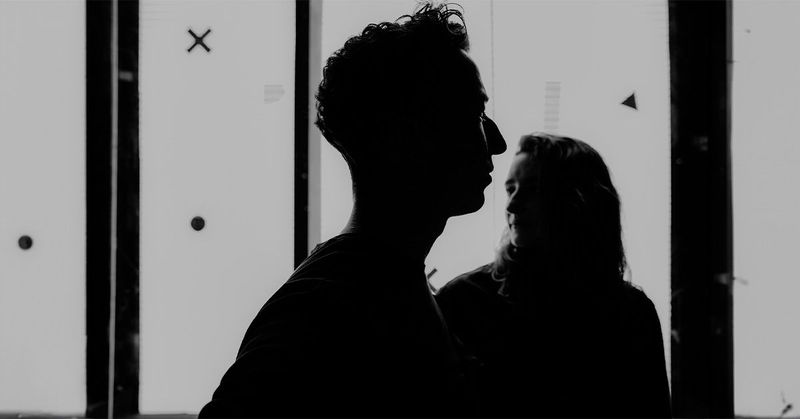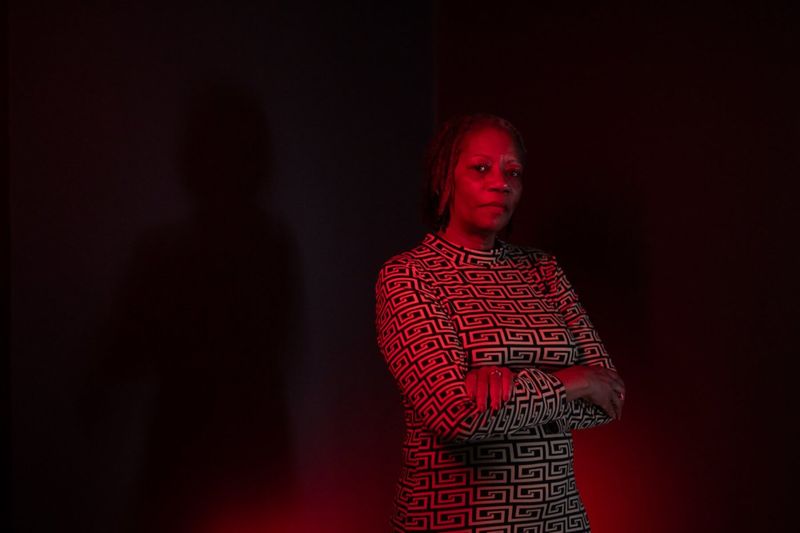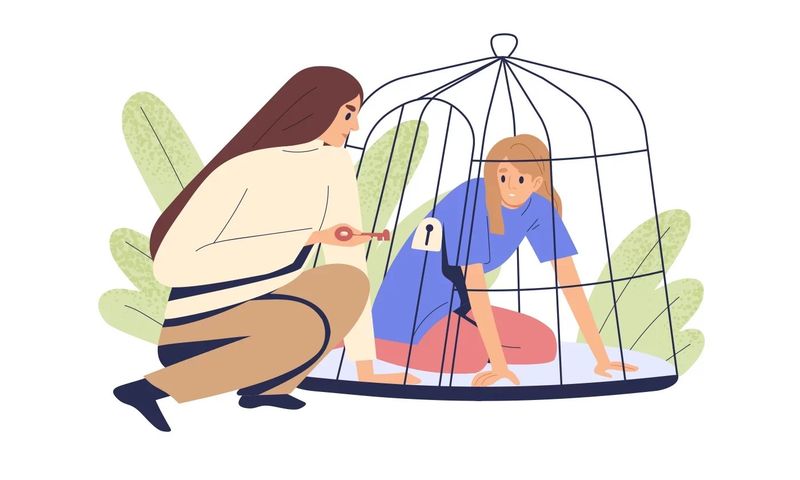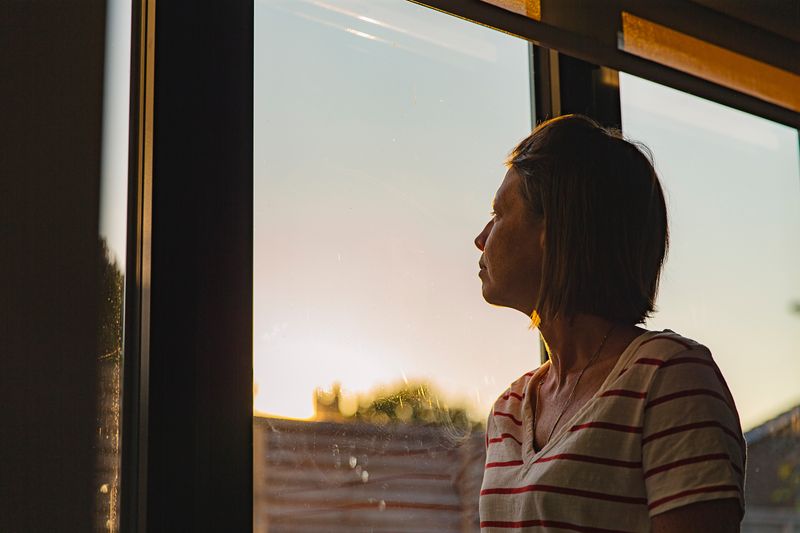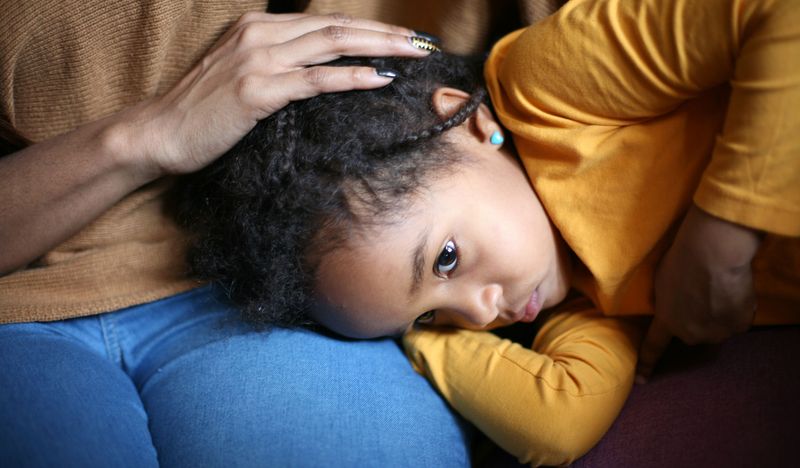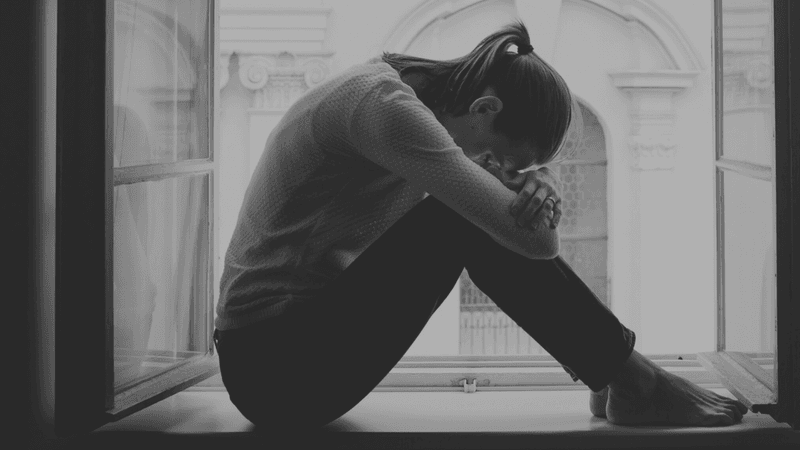Let’s start with the truth people don’t say out loud: women who stay in abusive relationships aren’t weak—they’re surviving. They’re navigating fear, love, guilt, shame, confusion, and hope—all at the same time. And from the outside, it’s easy to ask, “Why doesn’t she just leave?”
But from her side? The answer is layered, painful, and deeply human. What so many don’t get is that abuse rarely shows up with obvious warning signs or easy choices. These women are juggling emotional landmines, clinging to hope, and doing their best just to make it through the day.
If you’ve ever wondered why someone stays, buckle up—this is girl talk about the real, complicated, heartbreaking reasons behind survival.
1. Empathy That Overflows
Some women have empathy so strong it might as well be a superpower. She doesn’t just notice someone else’s pain—she absorbs it. When her partner snaps, yells, or falls apart, her instinct is to feel sorry for him, not herself.
It’s a blessing and a curse. She tells herself, “He’s hurting, and maybe I can help.” The world has trained her to fix things, to be a healer, to pour out kindness even when she’s running on empty. Deep down, she believes it’s her job to save the people she loves—even at her own expense.
Sound familiar? Empathy is gorgeous, but when it’s weaponized against you, it’s a trap. Abusers know how to tug those heartstrings, making her believe that fixing him is her purpose and pain is just the tax on loving hard.
2. Peacekeeping Is Her Default
Conflict? She’ll do anything to avoid it—even if it means walking on eggshells all day long. Arguments at home feel like emotional grenades, and she’s the only one on cleanup duty.
She’s learned the fine art of smoothing things over, apologizing first, and swallowing her own feelings. With every “It’s okay” and “I’m sorry,” she’s patching up cracks that aren’t hers to fix. This takes energy, patience, and a kind of bravery no one ever applauds.
But peacekeeping can mean she never gets a moment of peace herself. It traps her in a cycle where her comfort is always sacrificed for someone else’s calm. She looks brave on the outside, but inside, she’s exhausted and longing for someone to finally fight for her.
3. Forgets Her Own Needs
She’s a master at remembering birthdays, appointments, and her partner’s favorite snacks. But ask her when she last did something just for herself? You’ll get a blank stare.
Her needs simply don’t make the cut. Years of prioritizing everyone else have made her forget she even has her own desires. When she does speak up, guilt crashes over her, making her wish she’d stayed quiet.
If you’ve ever felt invisible in your own life, you’ll get it. It’s not about being selfless; it’s about being conditioned to disappear. She’s lost count of times she’s skipped meals, missed sleep, or ignored her dreams—because somewhere along the way, she learned her happiness was negotiable.
4. Endurance Queen: Pain Is Her Familiar
Some people flinch at discomfort—she barely blinks. Pain, both emotional and physical, is something she’s learned to carry with grace. It’s not that she enjoys it, but she’s built an armor that can withstand storms.
She grew up tough or got tough along the way. Every cruel word or slammed door just reinforced her belief that endurance is necessary. She survives what others might run from because she’s had no choice but to adapt.
But here’s the twist: what looks like strength becomes a trap. The higher her pain tolerance, the harder it is to recognize when “enough” should have been enough. Survival is her instinct, and it’s hard to let go of a skill that’s saved her, even when it keeps her stuck.
5. Master of Self-Blame
In her world, every argument circles back to: “What did I do wrong?” Self-blame is her constant, unwanted companion. If he’s angry, she’s convinced she triggered it.
This isn’t just low confidence—it’s the aftershock of being told, over and over, that she’s the problem. The mental gymnastics required to justify his actions are Olympic-level. She rewrites reality to keep herself in check, never realizing the blame belongs elsewhere.
Living like this is exhausting. She’s haunted by “maybe if I…” and “I should’ve known better.” Self-blame keeps her on her toes, always apologetic, always shrinking. The saddest part? She’s forgotten how it feels to be right about herself.
6. Loyal to a Fault
Loyalty runs in her veins; it’s stitched into her sense of worth. She made a promise, and she plans to keep it—even if it’s killing her inside. She clings to the idea that leaving equals failure, even when the relationship is draining the life out of her.
This isn’t about stubbornness. It’s about believing that loyalty means sticking it out, fixing the unfixable, and holding on tight even as everything falls apart. That old-school advice—“relationships are hard, just work through it”—echoes in her mind.
Sometimes loyalty becomes handcuffs. She stays because she’s worried about breaking her word. Deep down, she hopes her sacrifice will count for something, someday. Until then, she waits, heart heavy, still believing loyalty is love.
7. Haunted by Fear of Being Alone
The silence after a fight isn’t relief—it’s dread. The idea of being alone scares her more than another blowup. She’s been told, again and again, that she’s unlovable, and after a while, she starts to believe it.
Loneliness isn’t just emptiness; it’s a gnawing ache in her chest. Love, even when it hurts, feels safer than nothing at all. She settles for crumbs because she’s been convinced a feast isn’t coming.
If you’ve ever stayed in a bad situation just because the alternative seemed worse, you get it. The fear is paralyzing. It whispers that no one else will ever want her, trapping her in a place where even pain feels like company.
8. Toxic Feels Like Home
Chaos doesn’t shock her—it feels normal. Childhood taught her that love sometimes comes wrapped in yelling, cold shoulders, or slammed doors. Dysfunction is her comfort zone.
When drama explodes or moods swing, a part of her thinks, “This is just how relationships work.” She’s seen it played out in her family, in stories from friends, or even on TV. Toxic is familiar, so it doesn’t always register as wrong.
It’s tough to break a pattern when you’ve never seen anything healthier. Toxic love is still love to her, so she stays, hoping the mess is just part of the package. She deserves better, but she’s never been shown how to ask for it.
9. Hope Is Her Compass
Hope is a stubborn thing. She remembers the sweet words, the soft apologies, and the rare, shining days when everything feels okay. Those moments keep her hanging on long after the bruises—emotional or otherwise—have faded.
She’s convinced the person she fell for is still in there, somewhere. Every promise of change is a lifeline she can’t let go of. Her optimism turns pain into patience, always waiting for the good to come back for good.
Hope can be beautiful. But when it’s all you have, it’s also a trap. She tells herself, “Maybe this time it’ll be different,” and for a few hours, she almost believes it. That hope is both her anchor and her chain.
10. Alone in a Crowd
Isolation doesn’t always look like being locked away. Sometimes it’s a crowded room where she feels invisible. Friends stop calling, family drifts, and suddenly, her life shrinks to four lonely walls.
It’s not always her choice. He might control who she sees or criticize anyone who tries to help. Slowly, she pulls away, believing maybe she is the problem. The less support she has, the more trapped she feels.
Finding her way back can feel impossible. The loneliness is deafening, and without anyone cheering her on, leaving starts to look like a mountain she can’t climb. That isolation is the abuser’s favorite trick—and her biggest hurdle.
11. Reality Twisted: Gaslighted and Doubting
Gaslighting isn’t just a buzzword—it’s psychological warfare. She’s told she’s “crazy,” “too sensitive,” or “misremembering.” Her reality is bent until she can’t trust her own thoughts.
She writes things down to remember what’s real, but even that’s shaky. Each twist of the truth chips away at her confidence. It’s a dizzying, lonely place to be, always second-guessing herself.
When you don’t trust your own mind, standing up for yourself feels impossible. She’s stuck in a fog, always apologizing for being “wrong.” The truth is, she’s not broken—she’s been broken down. That confusion is by design.
12. Worried About What People Think
Judgment is her shadow. She imagines whispers, side-eyes, and gossip if the truth ever leaked out. The fear of being “that woman” keeps her story locked up tight.
She worries people will blame her, pity her, or—worst of all—think she deserved it. That shame is paralyzing. She’d rather suffer in silence than face a world that might not understand.
Sometimes, the fear of being judged hurts more than the abuse itself. She perfects her mask, keeps the secrets, and tries to look “normal” even as her world crumbles. All to avoid the sting of someone else’s opinion.
13. Leaving Isn’t Safe
For her, leaving isn’t as simple as packing a bag. The risk isn’t just heartbreak—it’s real, physical danger. Abusers often escalate when they sense their grip slipping.
She’s read the stories, heard the threats, and felt those moments when rage turned terrifying. The idea of starting over is appealing, but the price could be everything. Safety plans, shelters, and police calls aren’t just for TV—they’re her potential reality.
No one should have to weigh survival against freedom. But she does, every single day. Sometimes staying feels like the safest move, even when it’s crushing her spirit.
14. Mother Bear Instinct: Doing It for the Kids
Motherhood changes everything—including the way she sees her own safety. Some women stay because they think it’s best for the kids to have two parents, even when one is toxic. Others stay because they fear losing custody or simply don’t have a safe place to go.
She’ll eat her pain if it means her children feel secure. Her entire world shrinks to what’s best for them, even when it means sacrificing herself. The love is fierce, the fear even fiercer.
No one talks enough about the impossible choices mothers make under pressure. She’s not weak—she’s doing her best to protect her little ones, even when the cost is her own happiness.
15. Heavy Chains of Shame
Shame is sticky, heavy, and hard to shake. She doesn’t just feel ashamed of what’s happening—she’s ashamed for not leaving. That double burden is suffocating.
She’s convinced she’ll be judged, that people won’t understand, so she hides. Shame is the chain around her ankle, dragging her further down every time she tries to stand up. It whispers, “This is your fault.”
Breaking free means facing her shame head-on—a task that feels impossible some days. But shame loses power when it’s shared. Until then, she carries it, quietly, hoping someone will notice her struggle behind the brave face.
16. Trying to Earn Love: Overfunctioning
Her solution to conflict? Do more. She cooks, cleans, organizes, and manages every detail, hoping that if she just does enough, he’ll finally be happy and the abuse will stop.
Overfunctioning becomes her identity. She takes on more than her share, trying to control the chaos by sheer willpower. When things still go wrong, she blames herself for not trying hard enough.
It’s a losing game. No amount of effort will fix someone determined to hurt you. Yet, she’s stuck on the hamster wheel, hoping one more chore, one more dinner, one more perfect day will finally bring peace. It never does, but she can’t stop trying.
17. Frozen by Fear of Starting Over
The unknown is scarier than the familiar pain. Starting over isn’t just about leaving—it’s about facing a world that feels foreign, alone, and unforgiving. Her self-esteem is so chipped away that she can’t picture anyone else loving her.
What if she fails? What if she ends up with nothing? Those questions keep her frozen, suitcase packed but feet glued to the floor. Every new beginning feels like a potential disaster.
Sometimes the past, as awful as it is, feels easier than the uncertainty of freedom. The fear of the unknown is a silent, powerful force that keeps her rooted in place, hoping courage will come tomorrow.
18. Still Holding On to Love
Here’s the truth no one likes to admit: sometimes she still loves him. Abusers aren’t monsters every minute—they’re often charming, funny, and apologetic between storms. Love and pain are a tangled knot she can’t easily cut loose.
Her heart remembers the good, craves the attention, and hopes the sweet side will win out. She tells herself, “Maybe he can change.” The connection, however twisted, still feels real.
Judging her for loving someone who hurts her misses the point. Love is messy, complicated, and not always logical. Leaving someone you love is a heartbreak all its own—even if it’s the right thing to do.




